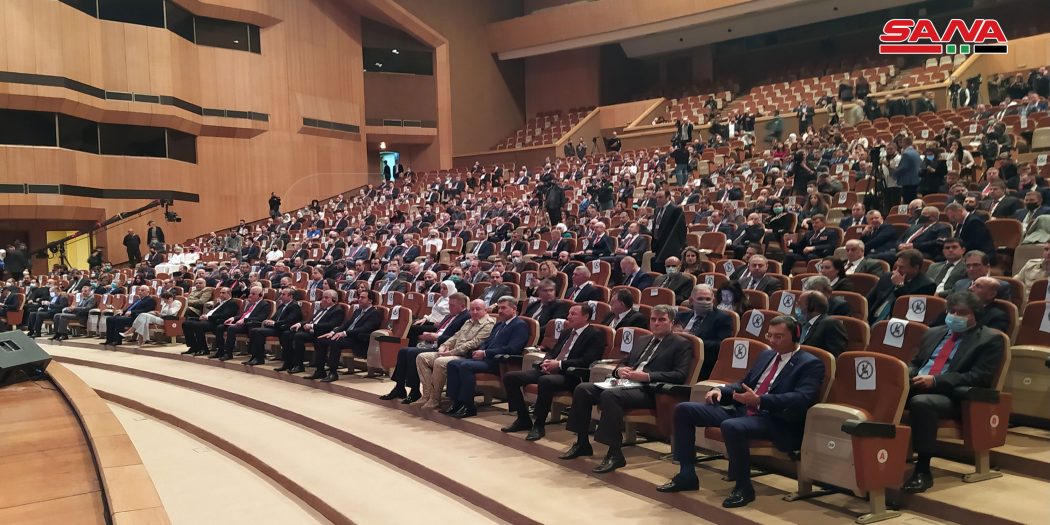On Tuesday, a joint Syrian-Russian meeting was held in Damascus concerning what has been described as the “return of refugees” to Syria, as part of an effort led by Russia to manage the refugee issue.
The meeting, announced by both Syria and Russia, comes after two conferences have been organized on the refugee issues. Russia tried to promote these conferences and get many countries involved. Russia’s efforts failed, however, and were not welcomed by the international community — which continues to view Syria as an “unsafe” environment for the return of refugees.
Signing agreements and transferring aid
The meeting was attended by Russian Envoy to Syria Alexander Lavrentiev, Russian Ambassador Alexander Yefimov, and Mikhail Mizintsev, the head of Russia’s National Defense Management Center. The regime was represented by Minister of Local Administration and Environment Hussein Makhlouf and Deputy Foreign Minister Ayman Sussan.
The meeting aimed to discuss ways for Syrian refugees to return to their country, sign agreements with Russia, and receive a Russian “humanitarian” aid package for the Syrian people.
Read Also: Jasmin Diab: “Lebanon Still Sees Syrian Refugees as a Burden, not an Opportunity”
At the end of the meeting, a ceremony was held to transport humanitarian aid to Syria. The aid delivery will include the delivery of 1.1 thousand tons of goods, comprising generators, medical equipment, food, medicine, school supplies, and winter clothes, according to the Russian news agency TASS.
The Russian Defense Ministry discussed measures to “create conditions for the repatriation of Syrian refugees, which are implemented by the Russian military administration along with the relevant federal executives.”
Two previous conferences and one meeting: Lower attendance
The first session of the refugee issue conference was held in November 2020 in Damascus, after a major promotion drive by Russia to attract as many participating delegations as possible. This objective was not achieved, with attendance confined to several countries that are not active on refugee issues, such as China, Iran, Lebanon, and the UAE.
The regime then pledged to provide a “decent life” for returnees, in the face of worsening living crises in citizens in regime-controlled areas. Key challenges primarily include bread and gasoline queues, power outages, and high living costs, making it impossible for most refugees to consider returning.
International humanitarian organizations denounced the conference, which the United States described as a “mere theatrical performance.”
The conference’s second iteration was held in July 2021. Russia was the only country in attendance, with the same delegations present that participated in today’s meeting. This demonstrates that the conference’s format has switched to bilateral meetings between the regime and Russia, with a timid presence from humanitarian organizations.
Russia wants refugees to return to Syria to start reconstruction projects in the country. This resolution follows the international community’s refusal to contribute to the reconstruction of Syria without a political solution. Similarly, the international community will not undermine European and American sanctions by supporting any efforts put forward by the regime and its allies for reconstruction.
Violations of returning refugees
Increasingly, international humanitarian observers are warning Syrian refugees against returning to their country, following documentation of several cases in which returnees have been subjected to abuses by the Assad regime.
In October, the UN Human Rights Council adopted a resolution asserting that Syria still lacks a safe environment for the return of Syrian refugees and displaced persons.
“We take note of the recent findings of the International Commission of Inquiry that Syria does not yet provide a safe environment for the sustainable and dignified return of refugees, nor for the 6.7 million internally displaced persons,” the Council said.
This article was translated and edited by The Syrian Observer. The Syrian Observer has not verified the content of this story. Responsibility for the information and views set out in this article lies entirely with the author.


